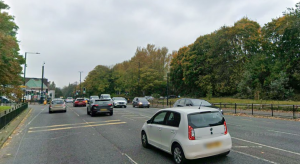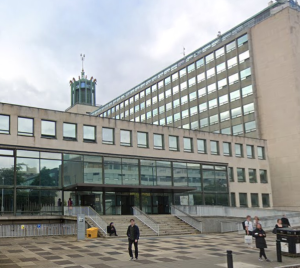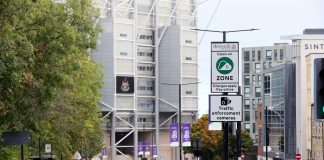Pollution campaigners say there remain “alarming” concerns about the state of Newcastle’s air, despite a drop in emissions.
Newcastle City Council released new data last week which showed a nine per cent fall in nitrogen dioxide (NO2) levels between 2023 and 2024, hailed as evidence that the city centre Clean Air Zone tolls are having a “positive impact”.
The number of streets in the city where NO2 levels are known to be exceeding legal limits had dropped from 48 to just two since 2019 – with Stephenson Road, near the Corner House junction on the Coast Road in Heaton, being the worst hotspot, followed by Percy Street in the city centre.

But the report published by the local authority last week admits progress has been “slower than expected” on tackling another form of harmful pollutant in the air, particulate matter, due to factors including funding challenges and a lack of “political buy-in”.
And a Government estimate released earlier this year predicted that Newcastle would be the last city in the country to become compliant with NO2 regulations, possibly as late as 2045, due to the Stephenson Road issue alone.
The council has now promised more action at that problem junction as “a matter of high priority”.
Campaign group SPACE for Gosforth said the overall cut in pollution levels was “good news for everyone who lives, works in or visits Newcastle” and welcomed confirmation that Gosforth High Street had been within the legal limits for five years running.
However, they added: “The lack of action from the council to address remaining ‘hot spots’ is concerning though, especially with the Government now saying Newcastle will be the ‘last city [in England] to become compliant’ by over a decade. The council needs to remind the Government of its legal obligation confirmed by the High Court in 2016 that it must ensure legal limits are met ‘by the soonest date possible’, and not delay until 2045 which is the Government’s latest estimate.
“It is also alarming that the council’s report cites lack of ‘political buy-in’ as a reason for why measures to reduce air pollution in Newcastle’s communities has been delayed.”
They added: “Air pollution is linked to a range of health conditions, not least asthma and lung cancer, so any delay has everyday consequences for people in Newcastle. If local or national politicians are blocking measures to reduce air pollution in Newcastle, they need to be held to account for the suffering caused by their lack of action.”
The CAZ, which the council has confirmed will stay in force, was launched in 2023 and charges drivers of some older, high-polluting vehicles either £12.50 or £50 per day to drive through the city centre.
The tolls affect certain taxis, vans, buses, coaches and lorries, but all private cars are exempt.
Council bosses have said, following the Government’s 2045 prediction, that it was “not possible to predict a precise date when all pollution levels in Newcastle will be compliant with legal limits”.
While their sensor located at the junction of Stephenson Road and Jesmond Park West recorded an average NO2 level of 64.5 micrograms per cubic metre of air (μg/m3) in 2024, well above the legal maximum of 40, that has improved significantly since readings above 92 μg/m3 were reported in both 2022 and 2021.

A spokesperson for Newcastle City Council said: “We are working hard to improve air quality in Newcastle and are committed to doing so in the shortest possible time.
“In some areas, such as Stephenson Road, this is more challenging and, while there have been improvements at this location, we know that roadside pollution levels there remain unacceptably high. Addressing this remains a matter of high priority.
“The latest data shows that on average, we are seeing better air quality across the city but clearly further improvements are still needed.
“We are working on a new air quality action plan for the city which will set out what further steps can be taken to achieve these improvements. This could include extending the use of electric buses and enabling more people to switch to public transport or active travel for some of their journeys.
“This plan will be subject to public consultation later this year, which will give people the chance to help determine what actions are taken.”




